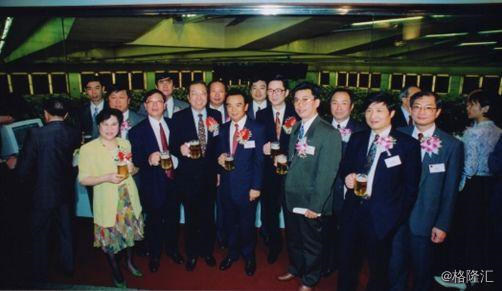It’s not that I don’t understand, this world has become too fast.
Editor’s note: This article comes from the WeChat public account “Gelonghui APP” (ID: hkguruclub) < / a>.
Author | Gu Min
Data support | Pythagorean big data
The Hong Kong Stock Exchange issued an announcement yesterday afternoon that the current CEO of the Hong Kong Stock Exchange, Mr. Li Xiaojia, will not renew after the contract expires in October next year. This means that the “master” who has been in charge of the Hong Kong Stock Exchange for 10 years is about to step down.
As a shareholder who has been floating in the Hong Kong stock market for many years, I have mixed feelings for a while. Li Xiaojia’s contribution to the Hong Kong Stock Exchange and Hong Kong stocks, although not a latecomer, must be unprecedented.
Before Li Xiaojia took over the Hong Kong Stock Exchange, Hong Kong stocks remained a colonial, arrogant, backward, and infamous market. However, when he was about to step down, the Hong Kong Stock Exchange became the first exchange in the Far East Asia Pacific, the world’s largest IPO and fund-raising center, and Hong Kong became one of the world’s three major financial centers juxtaposed with New York and London.
At this moment, Li Xiaojia’s departure is imminent, and I would like to commemorate the earth-shaking changes that have occurred in Hong Kong stocks over the past 10 years, as well as the reform genes that Li Xiaojia injected into the Hong Kong Stock Exchange and Hong Kong stocks.
1 The Wheel of History
Before joining the Hong Kong Stock Exchange, Li Xiaojia led many Chinese companies such as CNOOC, China Mobile and China Telecom to be listed in Hong Kong in the form of H shares.
In 1992, the then Chairman of the Stock Exchange, Li Yeguang, “letter” to the State Council and the People’s Bank of China, proposed a plan for “quality state-owned enterprises” to be listed in Hong Kong. This proposal was supported by Zhu Rongji, then Vice Premier of the State Council. However, since the vast majority of Chinese companies at that time were state-owned (collectively owned), the organizational structure (ie, “H shares” and “red chip stocks”) needed to be adjusted before going public to make them comply with international standards.
The history of this incident is called “Li Yeguang”. It not only changed the fate of Hong Kong stocks and the Hong Kong Stock Exchange, but also changed the fate of Li Xiaojia. In addition, Li Xiaojia took charge of the Hong Kong Stock Exchange and buried the grass snake gray line.

